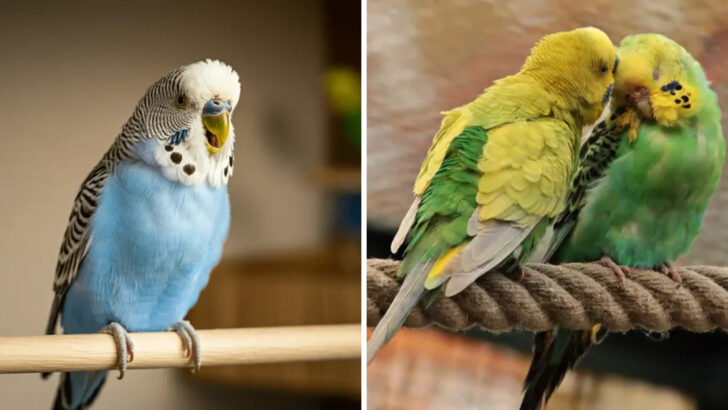Budgies are more than just colorful birds—they’re lively, charming companions who will bring endless joy to your home. But like any pet, they come with their own set of needs that require a little know-how to keep them happy and healthy.
From creating the perfect living space to meeting their dietary and social needs, there’s more to budgie care than just a pretty cage and some seeds. These tiny, feathery friends have big personalities, and understanding their behavior and habits will make a world of difference.
Whether you’re a first-time budgie parent or a seasoned bird lover, this guide will give you the inside scoop on everything you need to know to provide the best life for your pet. Get ready to turn your budgie’s world into a paradise!
Cage Size and Setup
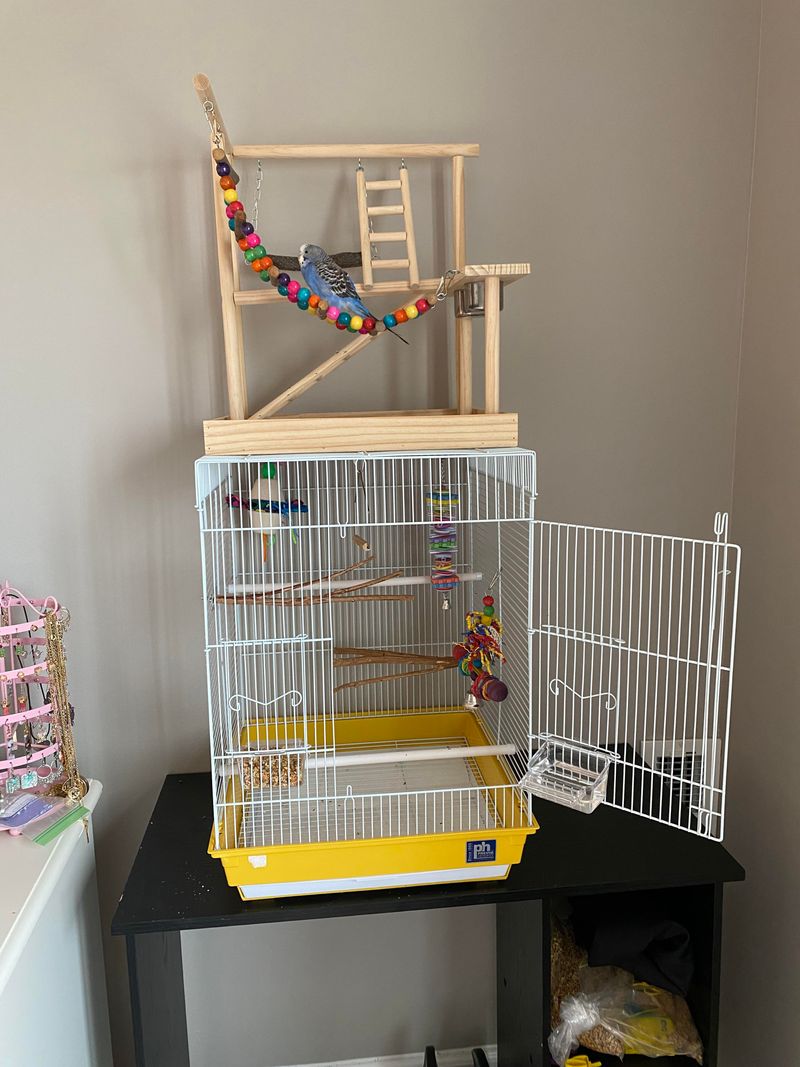
Choosing the right cage is crucial. Budgies need space to flutter, so opt for a cage that allows them to stretch their wings. Include perches of different diameters to keep their feet healthy.
A variety of toys will keep them entertained, while food and water bowls should be easily accessible. For comfort, locate the cage in a draft-free area of your home.
Cleaning the cage regularly is essential to maintain hygiene and prevent diseases. A well-organized cage not only ensures your budgie’s physical health but also contributes to its mental stimulation.
Balanced Diet
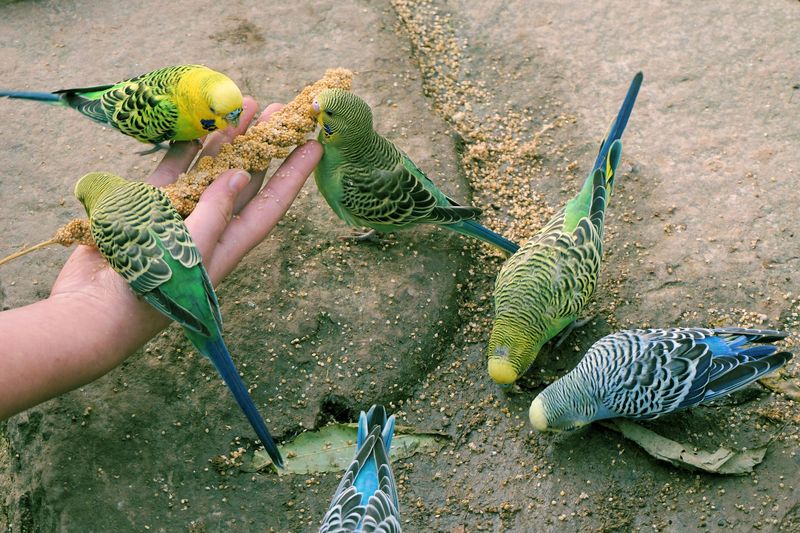
A balanced diet is vital for your budgie’s well-being. Seeds should be just a part of their diet, complemented by fresh fruits and vegetables. Avoid avocado and chocolate as they can be toxic.
Fresh water must be available at all times, and supplements like cuttlebone ensure they get enough calcium. Introducing new foods gradually helps avoid digestive issues.
Always clean fresh produce before serving. Remember, a varied diet prevents boredom and promotes a healthy, vibrant life for your budgie.
Social Interaction
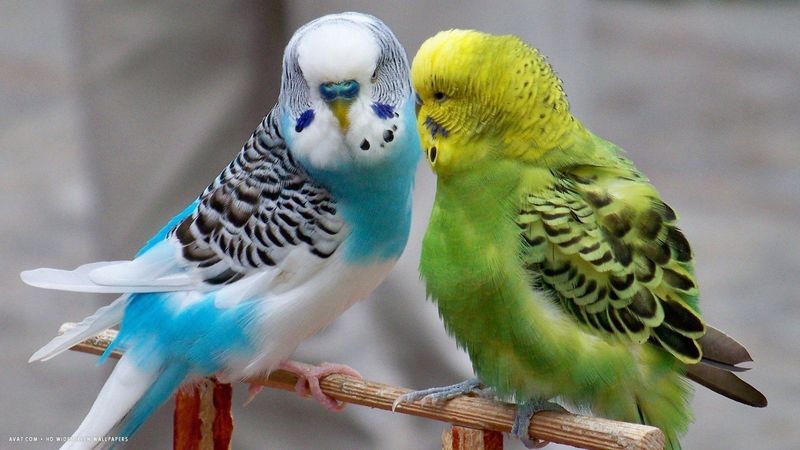
Budgies are social creatures that thrive on interaction. Spend time daily talking and playing with your budgie to build a strong bond. They enjoy mimicking sounds, so teaching them words can be a fun activity.
If you’re often away, consider getting a second budgie for companionship. It’s important to monitor their behavior to ensure they get along. Through social interaction, budgies enjoy a fulfilled and happy life, reducing the risk of loneliness and depression.
Health Monitoring
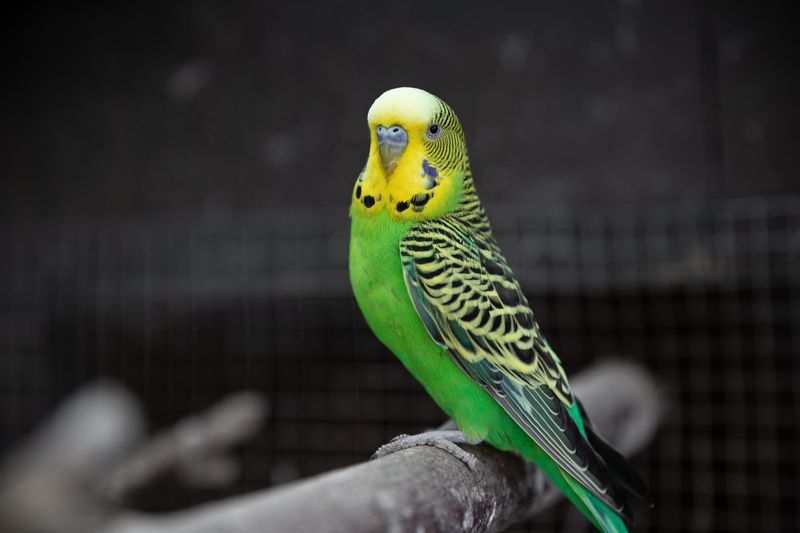
Regular health checks are essential. Observe your budgie’s behavior and appearance for signs of illness. A fluffed-up appearance or changes in appetite can indicate health issues. Regular vet visits help detect problems early.
A trusted avian vet can offer advice on vaccinations and parasite control. Maintaining records of your budgie’s weight and health status assists in monitoring their well-being over time.
Prompt attention to health matters ensures your budgie remains a lively companion.
Toys and Enrichment
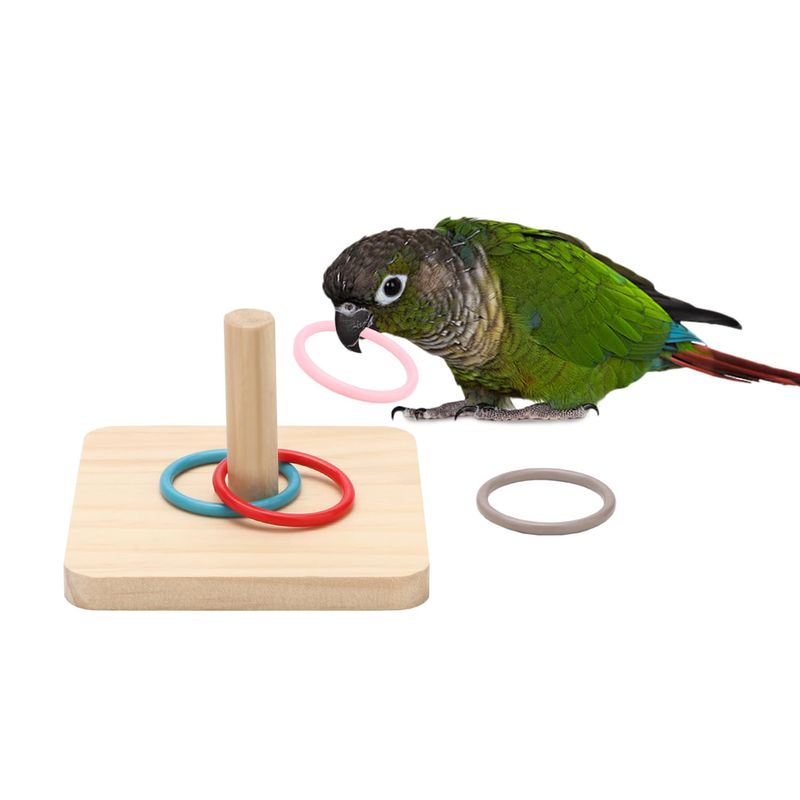
Toys are more than just fun; they are crucial for mental enrichment. Rotate toys weekly to keep your budgie engaged. Mirrors, bells, and chewable items offer entertainment and prevent boredom.
Avoid toys with small parts that could be swallowed. Interactive play with your budgie strengthens your bond as well. An enriched environment promotes cognitive health, ensuring your budgie stays curious and happy in their habitat.
Grooming and Care
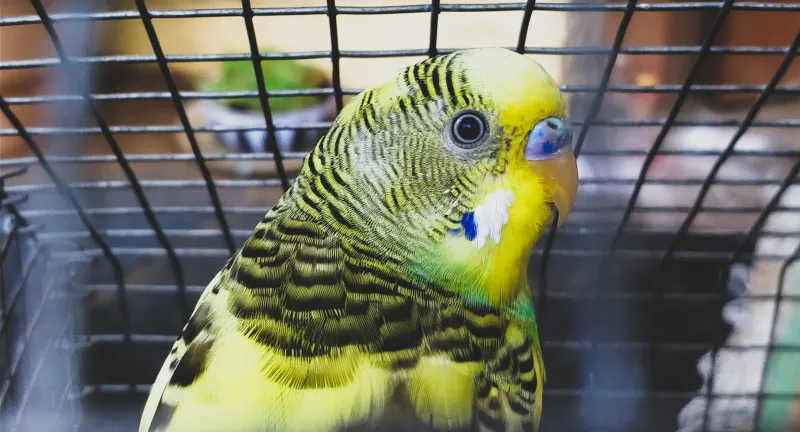
Routine grooming is vital for budgie health. Provide a shallow dish for bathing, as budgies love to splash around and clean themselves. Regular nail trimming prevents overgrowth, and checking beak condition is essential.
Gently mist your budgie with water to help them keep their feathers in top condition. Grooming not only keeps your budgie looking great but also reduces stress and strengthens their immune system. Happy budgies are clean and well-groomed ones.
Understanding Budgie Behavior
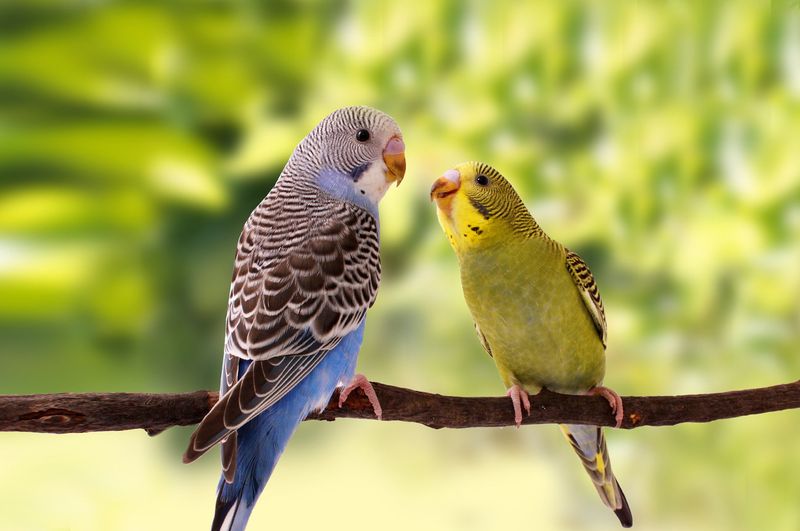
Reading budgie behavior helps in understanding their needs. Wing flapping or bobbing heads often indicate excitement or playfulness. Be aware of body language; puffed feathers could signal discomfort or illness.
Vocalizations can reflect mood, from chirpy contentment to distressed squawks. Spend time observing your budgie to learn its unique quirks and rhythms.
A good grasp of their behavior ensures you can provide the best care possible, aligning their environment with their natural instincts.
Proper Hygiene
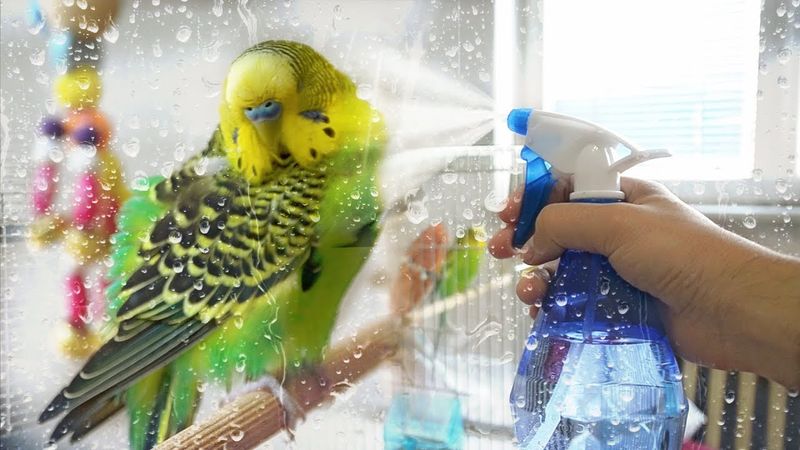
Maintaining hygiene is crucial for a healthy budgie. Clean the cage, perches, and toys regularly using safe cleaning agents. Always rinse thoroughly to remove any chemical residues.
Ensure food and water bowls are washed daily. Proper hygiene prevents the spread of bacteria and parasites. A clean environment is a fundamental aspect of responsible budgie care.
By keeping their space tidy, you significantly enhance your budgie’s quality of life, ensuring its long-term health and happiness.
Sleep Routine
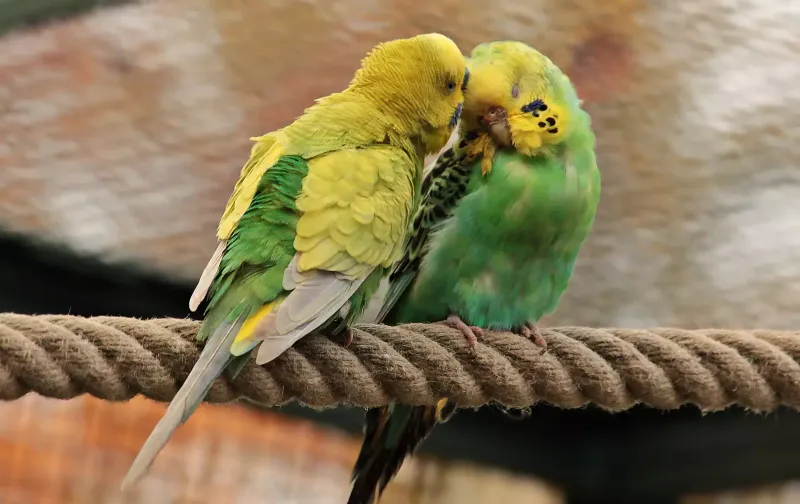
Budgies need adequate sleep to stay healthy. A consistent sleep schedule helps maintain their well-being. Cover the cage at night to block out light and noise, ensuring uninterrupted rest.
Budgies typically need 10-12 hours of sleep. Observe your budgie for signs of fatigue, such as excessive yawning. Establishing a calm night-time routine aids in better rest.
Proper sleep contributes to their mood, immune function, and overall health, helping your budgie to thrive in its environment.
Training and Tricks
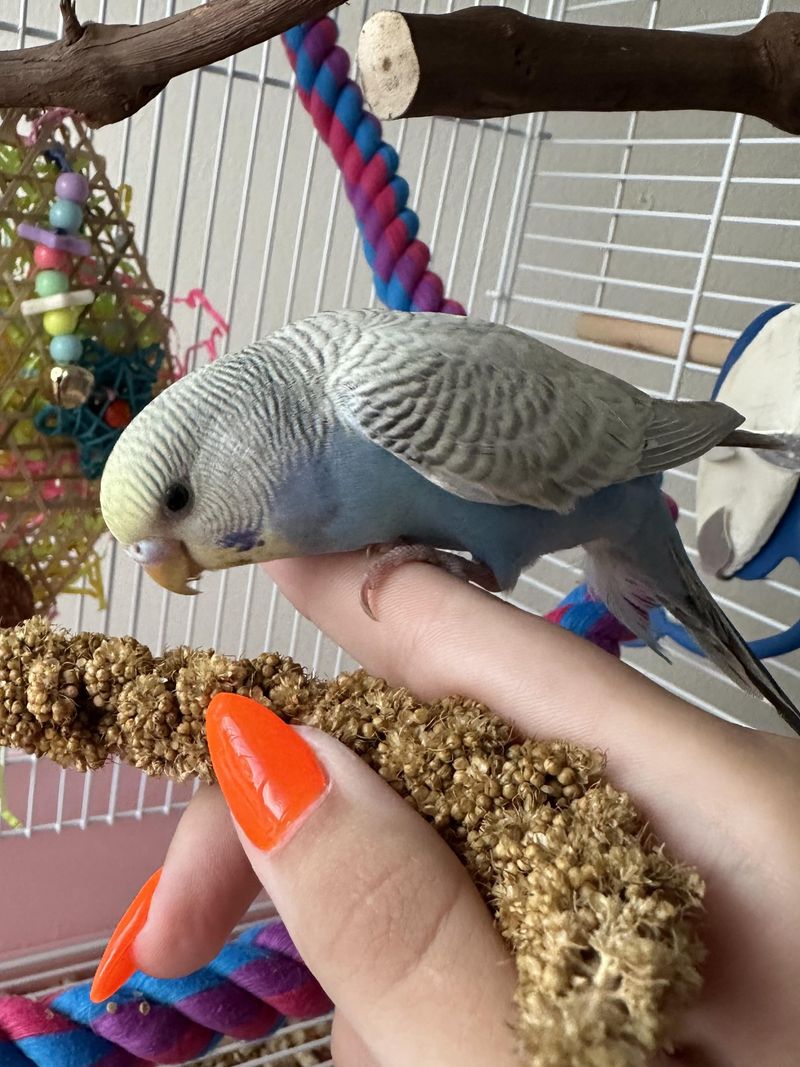
Training can be an enjoyable part of budgie ownership. Start with simple commands like “step up” to encourage your budgie onto your finger. Use positive reinforcement with treats and praises.
Regular short sessions are more effective than lengthy training. Teaching tricks keeps their mind sharp and strengthens your bond. Patience and consistency are key.
Training not only provides mental stimulation but also enhances the communication between you and your budgie, making everyday interactions more enjoyable and rewarding.
Breeding and Nesting
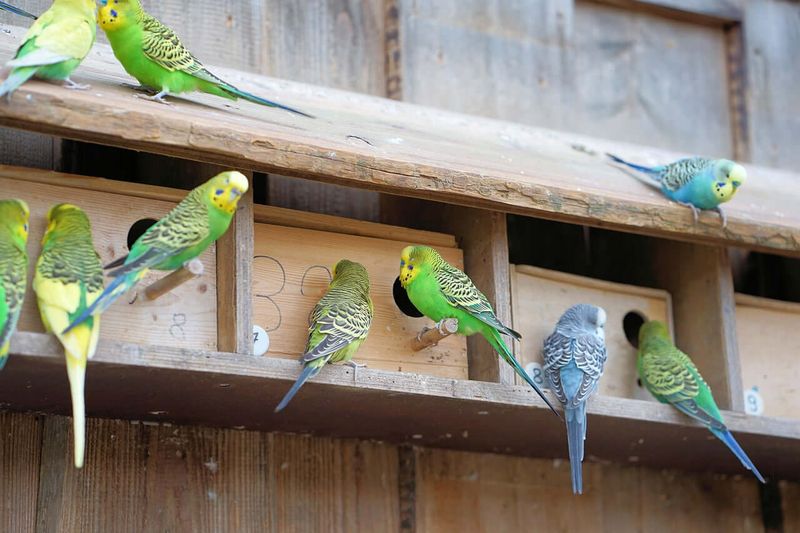
Breeding budgies requires preparation. Ensure you have a suitable nesting box and monitor the pair’s compatibility. Provide nutritional support with a diet rich in calcium and protein.
Observe their behavior for signs of successful mating. It’s vital to be prepared for the responsibility of caring for chicks, including ensuring adequate space and resources.
Breeding should only be attempted by well-informed owners ready to invest time and care. Successful breeding results in healthy, vibrant chicks contributing to the joy of budgie ownership.
Dealing with Illness
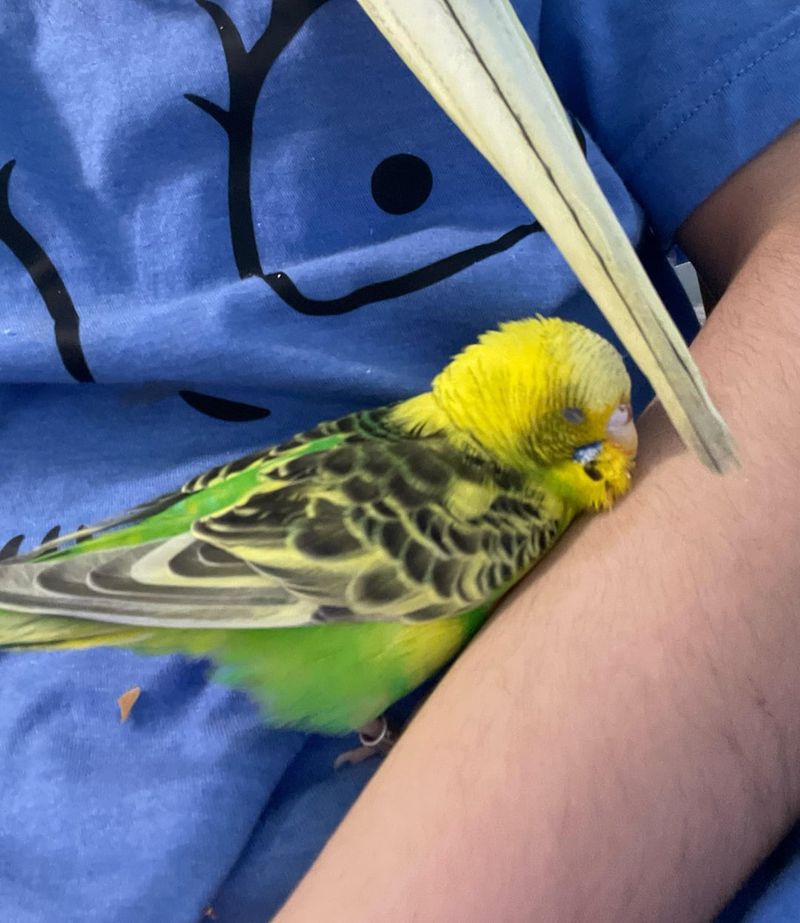
Recognizing illness early is crucial. Symptoms like lethargy, fluffed feathers, or changes in droppings warrant immediate attention. Consult an avian vet for diagnosis and treatment.
Keep a first aid kit with basic supplies like antiseptic and bandages. Maintaining a stress-free environment aids recovery. Educate yourself on common budgie ailments to act promptly.
Addressing health concerns quickly not only safeguards your budgie but also ensures peace of mind for you as an owner, supporting a long, fulfilling relationship with your pet.
Managing Noise Levels
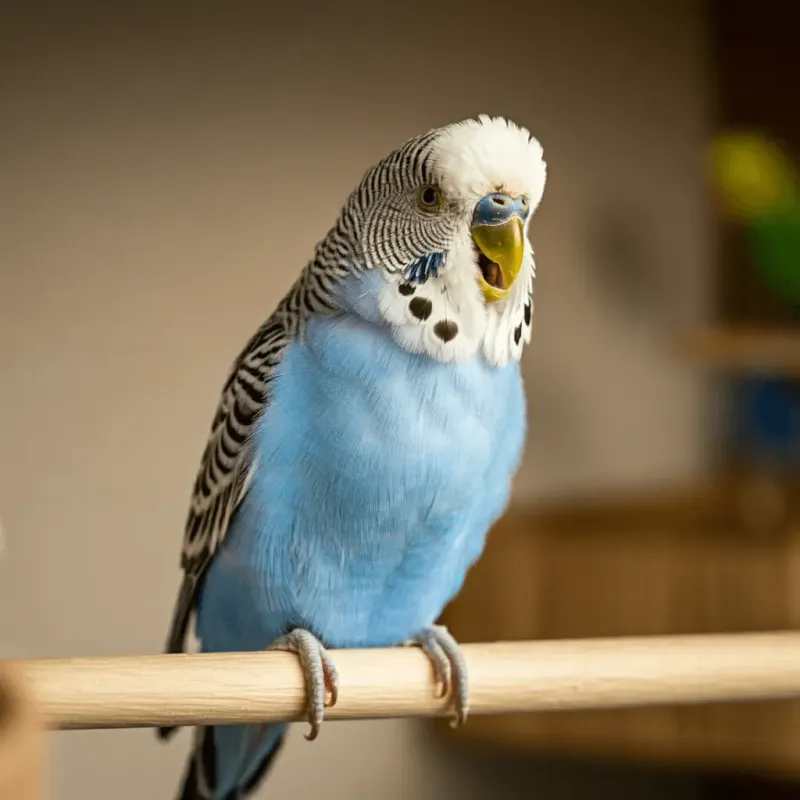
Budgies are sensitive to noise, which can affect their stress levels. Keep their environment calm and avoid sudden loud sounds. When socializing, maintain a gentle tone.
Excessive noise can lead to anxiety or behavioral issues. Monitoring ambient noise helps create a serene space for your budgie. This consideration ensures they remain relaxed and content in their home, fostering a peaceful coexistence.
Adjustments in noise levels contribute significantly to their well-being and happiness, enhancing daily interactions and overall quality of life.
Identifying Gender
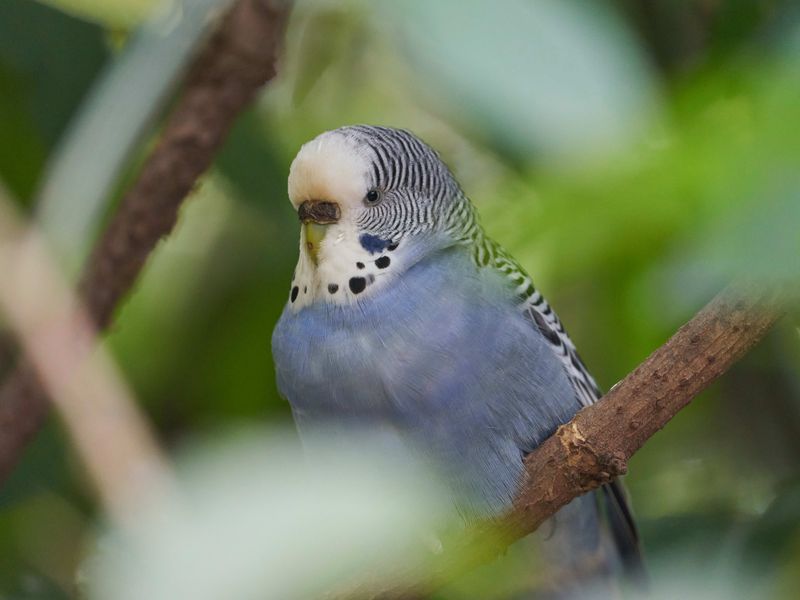
Identifying a budgie’s gender can be intriguing. Males typically possess a blue cere, while females have a brown or white one. Gender identification aids in understanding behavior and breeding prospects.
Knowing your budgie’s gender helps tailor interactions and care. Visual identification is most reliable in mature budgies. Consulting a vet can provide confirmation.
Being aware of gender-related traits also enriches the care experience, helping you comprehend your pet’s unique characteristics and fostering a more personalized approach to budgie care.
Adapting to Seasonal Changes
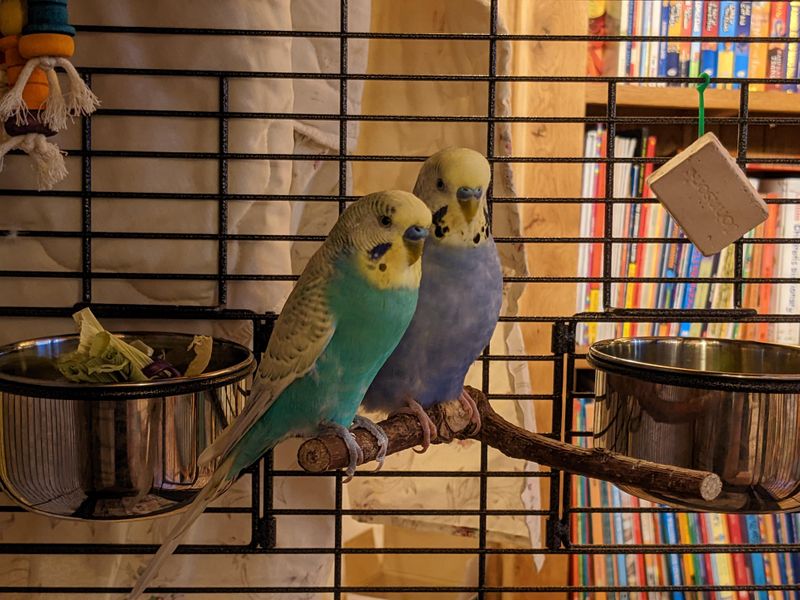
Budgies may react to seasonal changes. In cooler months, ensure they stay warm by avoiding drafts and providing a stable temperature. During summer, prevent overheating by maintaining good ventilation.
Seasonal molts are normal, requiring extra grooming and nutrition. Adjusting care routines to align with seasonal shifts supports their health and comfort.
Observing these changes ensures that your budgie remains healthy throughout the year, adapting comfortably to environmental variations, and thriving regardless of external conditions.
Traveling with Your Budgie
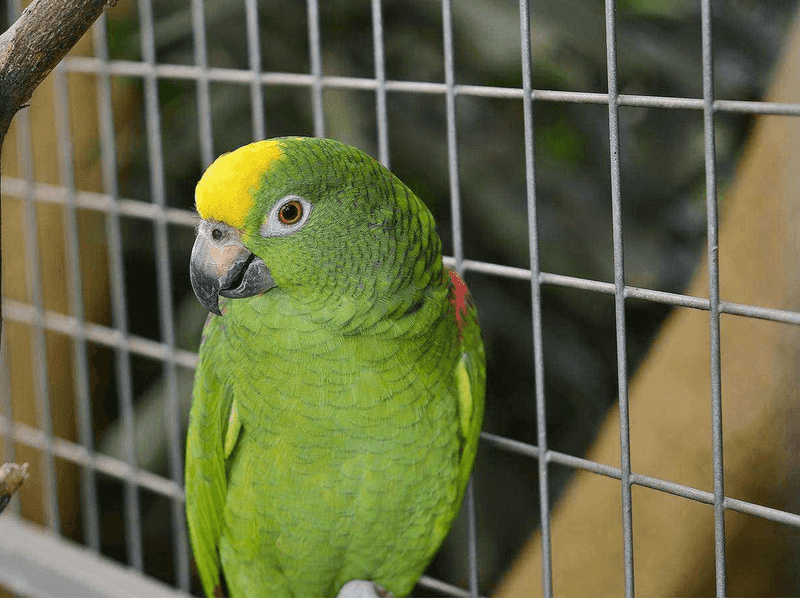
Traveling with a budgie requires planning. Use a spacious carrier for short trips, ensuring it’s well-ventilated. Familiarize your budgie with the carrier prior to travel.
Pack essentials like food, water, and a small toy. For longer journeys, consider accommodations that are pet-friendly. Keep your budgie’s routine consistent to minimize stress.
Monitoring their reaction during travel helps in making necessary adjustments. Proper preparation makes travel enjoyable for both you and your budgie, allowing you to share experiences without discomfort or anxiety.
Understanding Lifespan and Commitment
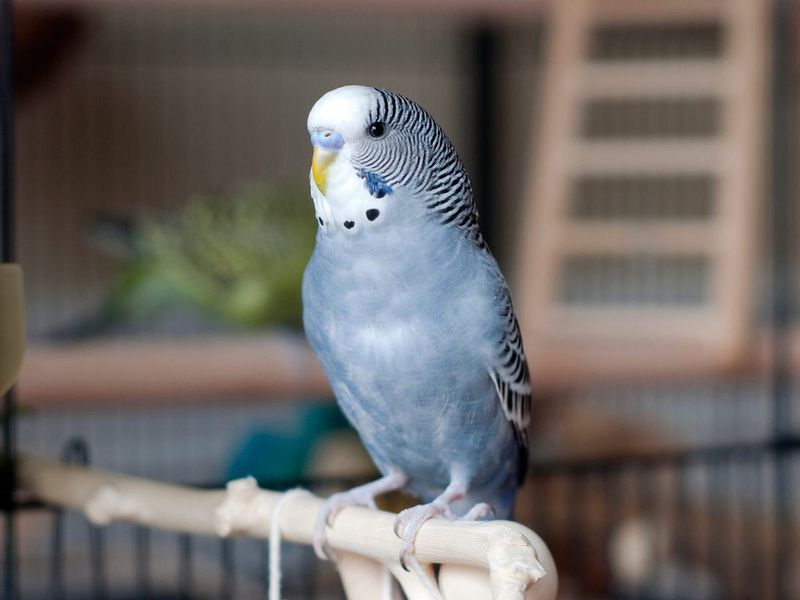
Owning a budgie is a long-term commitment, with lifespans ranging from 5 to 10 years. Understanding this helps in planning for their future well-being. Ensure you’re prepared for the responsibility, from daily care to potential medical needs.
The bond you form is deeply rewarding, offering companionship throughout its life. Educating yourself on budgie care continually is vital.
Long-term commitment enriches the relationship, providing both you and your budgie with fulfilling companionship and shared joy over the years.
Budgie Fashion Show

Have you ever considered hosting a budgie fashion show? It’s a delightful way to engage with your feathered friend. Gather some lightweight fabrics and craft tiny costumes for your budgie to strut its stuff. Not only is this creative activity fun, but it also helps in strengthening the bond between you and your pet.
Creating a mini runway complete with a small audience of plush toys can add to the fun. This quirky activity encourages socialization and provides mental stimulation. Always ensure that the costumes are comfortable and safe for your budgie to wear.
Remember to keep the sessions short and enjoyable. Your budgie’s well-being should always be a priority, ensuring that it doesn’t experience stress or discomfort during its fashion debut.

